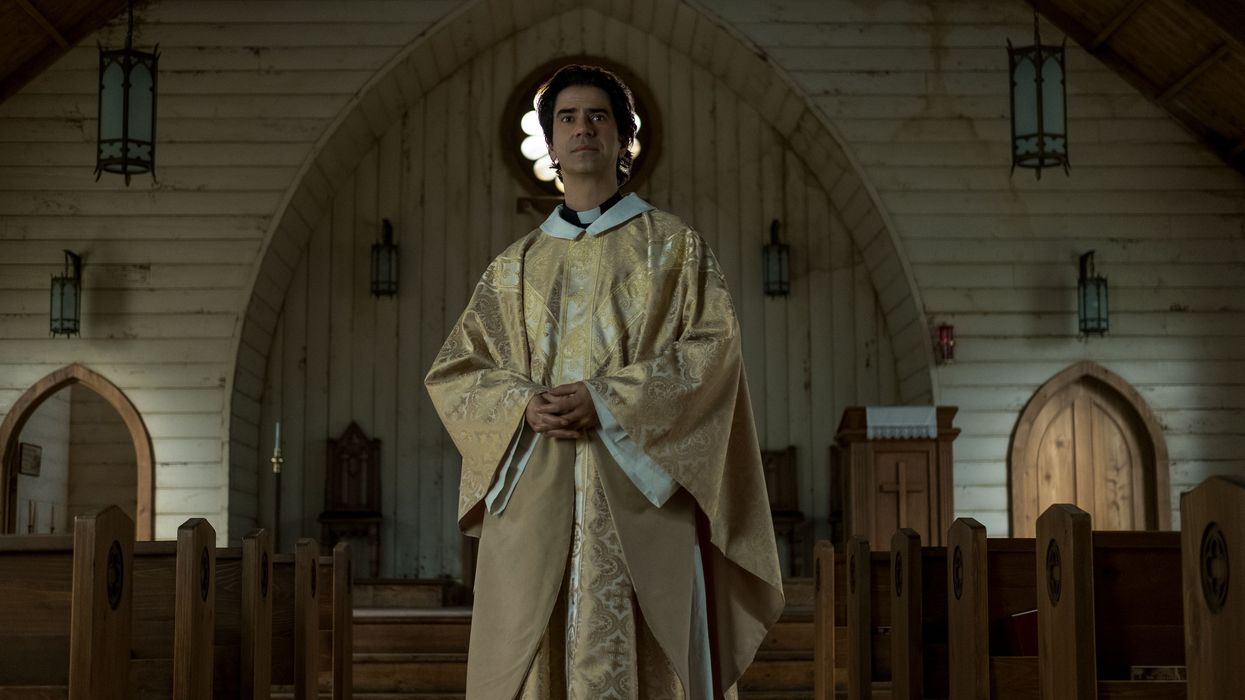Why Does God Stay Silent in Religious Existential Films?
Sometimes, there are no answers to life's biggest questions.

While the long hours of light and warmth of summer bring most of us out of our seasonal pondering of life’s biggest questions, I have found myself treading in those existential waters after watching Everything Everywhere All at Once. While Everything Everywhere focuses on the meaning of life through a flamboyant visual and audio style, most existential films tend to focus on the silence that comes with the question, “What does it all mean?”
Existentialism in film is cinema at its mightiest and holiest. It breaks down one of the most fundamental questions of life that are uniquely human. These films are typically quiet and introspective as the characters are faced with problems that have no solution.
Filmmakers lean toward the parts of human life that are profound and find ways to bring them life. Existential films usually connect to the church and religion to bring to life the feeling of emptiness and lack of meaning, and they attempt to explain that sometimes there is nothing we can do but accept things as they are.
Like Stories of Old breaks down why God stays silent in these types of existential films, and why that silence is meaningful to a viewer.
What Are Existential Films?
Existential films deal with a world or life that is devoid of any preordained meaning, rules, or justice. Typically, they often focus on the confusing struggle to find personal meaning in a time of unreasonable and unexpected tragedy.
We can’t help but question our world. Knowing what we are supposed to do with our lives would make living so much easier, but that’s not the human condition. As much as we try to obtain knowledge and understanding, we can’t fully understand why we exist.
Existentialism and Religion
When we are experiencing moments of existential questioning, we often look for answers in our beliefs and practices. Many times, people will turn to religion to search for answers to these questions.
Churches are built in the center of communities, typically on the highest ground to look over everything, and are stunning works of art that are overwhelming in their presence. You begin to feel how insignificant you are as a single person by the complete silence of a church because you can feel it—something bigger than words.

As artists, we understand that words can fail us. Not every feeling and experience can be explained, so we must find new ways to show them. The church and religion are great ways to voice this notion of existentialism. God may not be tangible, but the idea of this divine being can further explain the way a person interacts with the world around them.
This doesn't mean you have to believe in religion to have stories that work parallel to religious ideas. Although religion can be a source of light and acceptance in some people’s lives, there is no denying that religion has also been a great source of misery and suffering. Historically speaking, the belief that there is not only a grand plan for the universe, but that we also have access to it, has often led to uncritical self-righteousness, fanaticism, and the committing of atrocities.
Regardless of belief, existential films give us the ability to explore ideas and feelings rather than find definitive answers.

The Divine Silence
Life is noisy. It is not stimulating in the same way nature can be, because human society is not grounded. Everything can start to feel draining, pointless, and overwhelming due to too many questions. Having guidance in the form of a spirit that supposedly knows the correct path can be extremely comforting.
By transforming silence into a visual language of existential art, and keeping God silent when characters ask for a sign, a film is creating a universally shared experience that is profoundly human. There is something just beyond our grasp that we will never fully understand, so we must simply sit in silence with the beauty of the unknown.
Films and shows like The Seventh Seal, Silence, and Midnight Massface these daunting fundamental questions about life and ask us, as viewers, to sit and watch. We don’t have to say anything, do anything, or be anything as they indulge in the despair of the human experience.
There is metaphorical power between religion and existentialism. The concept of the transcendental reminds us that there is something that can overpower all of us, and it brings back our humility and humanity. No one possesses absolute truth, and existential films articulate this through the beauty of silence.
Do you have a favorite religious existential film? Let us know why you love it in the comments below!
Source: Like Stories of Old











